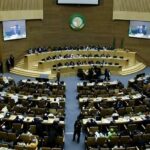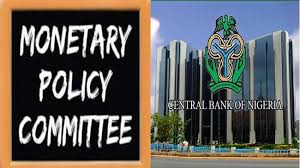By Kadiri Abdulrahman
As the Monetary Policy Committee (MPC) of the Central Bank of Nigeria (CBN) holds its 302nd meeting on Monday, some stakeholders have urged loosening of the policy rates.
They spoke to the News Agency of Nigeria (NAN) on Sunday in Abuja.
NAN reports that the MPC had retained the baseline interest rate known as the Monetary Policy Rate (MPR) at 27.50 per cent for the third consecutive time in its 301st meeting in July.
This marked a departure from the aggressive tightening stance adopted by the committee under the leadership of Yemi Cardoso, the CBN Governor.
The Cardoso-led MPC had raised the MPR from 18.75 per cent to 27.50 per cent between February 2024 and July, 2025.
Some stakeholders are calling for a rate cut due to moderation in headline inflation for several consecutive months, a positive sign that prior monetary tightening measures are working.
A Development Economist, Prof. Ken Ife, said that there had been persistent calls and expectations for MPC to bring down the MPR.
Ife, Lead Consultant on Private Sector Development to the ECOWAS Commission, however, said that he was not persuaded that the time was right to ease the rates.
“It is true that the rebasing of inflation has pushed the real interest rate to positive territory, MPR being higher than inflation.
“The seeming moderation of year-on-year inflation is contradicted by month on month inflation. Notwithstanding the general moderation, the food sub-index is rising.
“The meltdown of Foreign Direct Investments (FDIs) and the volatility of crude sales component means that we are dependent on foreign portfolio inflows, which is very sensitive to the MPR and yields on securities,” he said.
A Financial Expert, Prof. Uche Uwaleke, said that the MPC would likely retain existing rates due to prevailing falling inflation rate and exchange rate stability.
According to Uwaleke, the Director, Institute of Capital Market Studies, Nasarawa State University, Keffi, inflation rate has been on a downward trend, and the exchange rate has been quite stable for sometime now.
He, however, said that inflation rate remained elevated at over 20 per cent.
“The recent drop in inflation rate has been due largely to seasonal factors associated with food inflation.
“Core inflation on a month-on-month basis actually increased in August according to the NBS report.
“Considering the downside risks to inflation, including the increasing FAAC allocations and approaching festive season often characterised by rising demand for goods and services, the MPC will likely maintain the status quo.”
He called for a narrowing of the asymmetric corridor around the MPR to further consolidate stability in the banking sector.
“I think the MPR corridor of -1/+5 basis points is too wide and therefore, recommends a narrower corridor of -2/+3 basis points.
“This discourages banks to place too much reliance on the CBN standing deposit window,” he said.
The Director-General of the Nigeria Employers Consultative Association (NECA), Mr Adewale-Smatt Oyerinde, said that the decline in inflation was commendable.
Oyerinde, however, said that full benefits would remain muted unless the MPC strategically began to reduce the benchmark interest rate.
“Lower interest rates will not only stimulate enterprise competitiveness but also boost access to credit, investment and job creation, which are critical levers for inclusive growth,” he said.
He said that the current inflation trend presented a compelling case for the MPC to ease its tight stance. (NAN)(www.nannews.ng)
Edited by Ese E. Eniola-Williams












